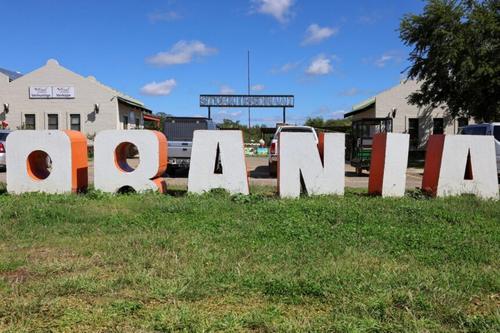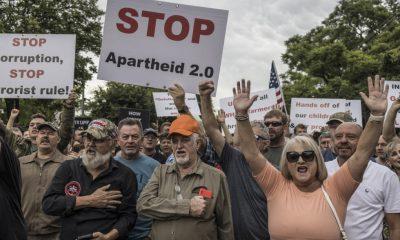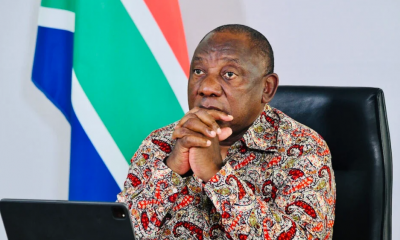411
Orania: South Africa’s Self-Governing Town with Its Own Public Holidays and Currency

Nestled in the arid Karoo region of South Africa, Orania stands as a town unlike any other in the country. With over 3,000 residents, this Afrikaner-only town boasts its own set of public holidays, currency, and a strong commitment to preserving the Afrikaner culture. But Orania’s uniqueness doesn’t stop there. It has a fascinating history rooted in the legacy of apartheid and a vision of cultural self-determination that remains at the heart of the town’s mission.
Orania’s Vision: Preserving Afrikaner Culture
Founded in 1991, Orania is a town where Afrikaner culture is actively preserved and celebrated. Central to the town’s mission is cultural self-determination, which allows residents to live out their traditions, customs, and language. Joost Strydom, the town’s CEO, emphasizes that this self-determination is enshrined in the town’s constitution, granting it the right to govern and celebrate its culture as it sees fit.
While visitors of any race or culture are welcome to explore Orania, residency is limited to Christian Afrikaners who support the town’s vision. This exclusive approach has drawn attention and sparked debates about the future of the town, especially when it comes to the observance of its own public holidays.
Unique Public Holidays: A Step Back in Time
Unlike the rest of South Africa, which observes 12 national public holidays, Orania observes a calendar that reflects its commitment to Afrikaner heritage. Some of these holidays trace back to significant events during the apartheid era and earlier, including the Battle of Blood River and other key moments in Afrikaner history.
One of the most notable holidays is Geloftedag (Day of the Vow), celebrated on December 16th. On this day, Orania residents commemorate the 1838 Battle of Blood River, where Afrikaners defeated a much larger force of Zulu warriors. The day is marked with traditional clothing, church services, and reflections on Afrikaner identity.
Here is a breakdown of some of the key holidays observed in Orania:
| Date | Afrikaans Name | English Translation | Significance |
|---|---|---|---|
| 27 February | Majubadag | Majuba Day | Commemorates the 1881 Battle of Majuba Hill, ending the First Boer War. |
| 6 April | Stigtingsdag | Founder’s Day | Marks Jan van Riebeeck’s arrival and Orania’s founding. |
| 31 May | Bittereinderdag | Bitter Enders’ Day | Honors the 1902 Treaty of Vereeniging and South Africa’s 1961 republic. |
| 14 August | Taaldag | Language Day | Celebrates the Afrikaans language and its literature. |
| 10 October | Heldedag | Heroes’ Day | Celebrates the birthday of Paul Kruger, former president of the South African Republic. |
| 16 December | Geloftedag | Day of the Vow | Commemorates the 1838 Battle of Blood River. |
The Origins of Orania: A Town Built on a Unique Vision
The idea of Orania as an Afrikaner homeland predates the town itself. The roots of Orania’s founding can be traced to the 1950s and the formation of the Orania Movement in 1988. This movement called for a region in South Africa where Afrikaners could preserve their culture and language, particularly as their influence was seen to be waning in a changing South Africa.
Orania’s path to becoming a self-governing town culminated in the 1991 purchase of land, despite not offering the highest bid. The town operates with its own governance structure, the Orania Representative Council (ORC), which functions as a local municipal authority. The town is largely self-sustaining, providing its own services and infrastructure without relying heavily on the South African government.
A Self-Sustaining Future
Orania’s residents contribute millions in taxes each year to the South African government, yet they rarely receive services in return. The town has cultivated a unique relationship with the state, maintaining its independence while contributing to the national economy.
In terms of governance, Orania’s local council is a product of a special historical arrangement that allows it to operate with autonomy. While the rest of South Africa follows the national municipal system, Orania is governed by a council that ensures the financial and cultural sustainability of the town.
Controversy and the Future of Orania
Orania’s existence raises important questions about the future of South Africa’s cultural and political landscape. As a self-governing town focused on preserving Afrikaner heritage, Orania remains a symbol of South Africa’s complex and often contentious history. While the town’s commitment to cultural preservation is clear, it remains to be seen how this isolated vision will evolve as the country continues to grapple with issues of race, equality, and national identity.
Orania remains one of South Africa’s most unique towns. It continues to thrive as an Afrikaner-only enclave, holding steadfast to its vision of cultural self-determination and heritage preservation. Whether Orania will continue to grow and influence South African society, or whether its model will spark broader debates about identity and autonomy in the country, is yet to be seen.
{Source BusinessTech}
Follow Joburg ETC on Facebook, Twitter , TikTok and Instagram
For more News in Johannesburg, visit joburgetc.com



























